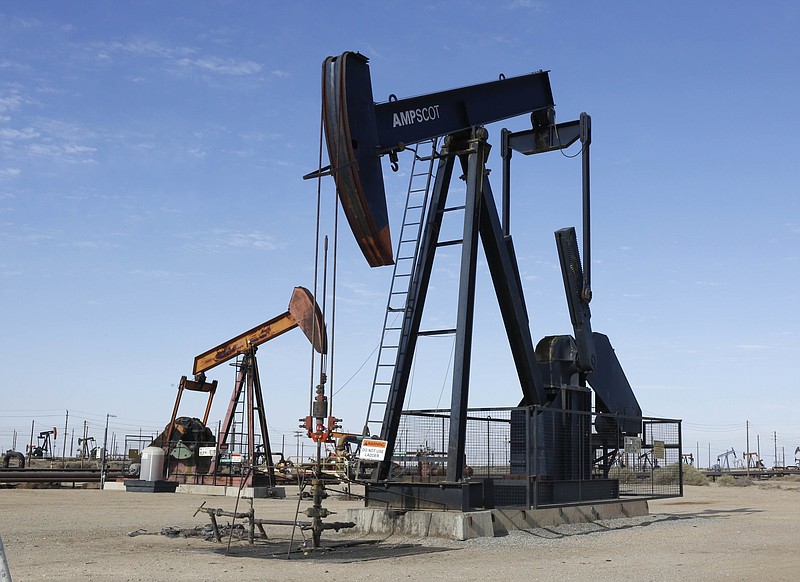LONDON (AP) - Oil prices fell further Wednesday, with the international benchmark for crude sliding below $45 a barrel.
The recent drop in price indicates that efforts by OPEC and 10 other oil-producing countries to cut their production to reduce a supply glut and push prices higher are falling short.
While Russia, Saudi Arabia and other nations involved in the deal have met their targeted cuts, an unforeseen increase in U.S. supply has countered these efforts. With the glut persisting, the outlook for oil prices has been dampened.
"As we see it, it is not the events that are putting pressure on prices, but above all the shift in sentiment, the previous optimism appearing to have virtually evaporated," analysts at Commerzbank wrote in a note to clients. They predict persistent negative sentiment could push the international benchmark, Brent, below $45 per barrel.
Brent was down $1.20, or 2.6 percent, at $44.82 a barrel. The U.S. benchmark dropped 98 cents, or 2.3 percent, to $42.53 a barrel in New York.
Weak prices mean, all other things being equal, consumers can expect cheaper energy and car fuel.
The U.S. Energy Information Administration's weekly petroleum data for the week ended Friday showed a 2.5 million decrease in American crude oil supplies from the previous week.
Jenna Delaney, senior oil analyst at Platts Analytics, said the supply numbers were largely in line with the range of market expectations. Still, "with the bearish sentiment that's been building over the past couple weeks, this fairly neutral set of numbers were not supportive enough to push prices higher," she said.
A recent report from the Paris-based International Energy Agency predicted next year's increase in output by non-OPEC countries will be slightly higher than the increase in global demand.
Meanwhile, Wednesday's appointment of new Saudi Crown Prince Mohammed bin Salman, a man famous for his combative political and economic policies against fellow OPEC member Iran, has placed the future of the supply-cutting plan under increased uncertainty.
"His aggressive stance against Iran makes it unlikely to see greater Saudi participation in supply cuts without Iran cutting production as well," Petromatrix analysts wrote in a daily market report. Currently, Iran is one of three OPEC countries that have not been asked to cut oil production.
Last week, OPEC countries and a group of other oil-producing nations, led by Russia, agreed to extend their overall cuts by nine months until next March.

